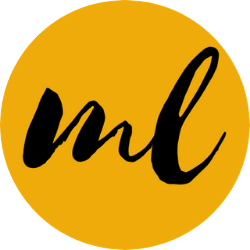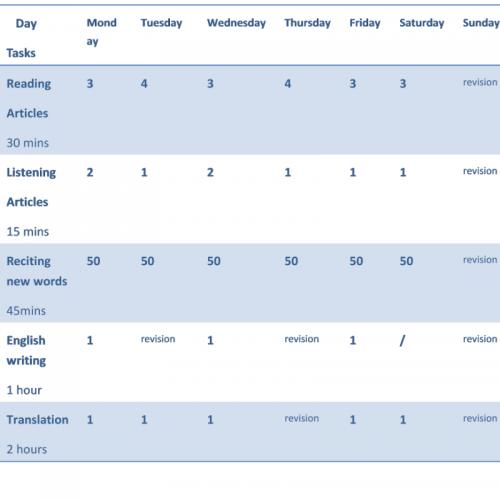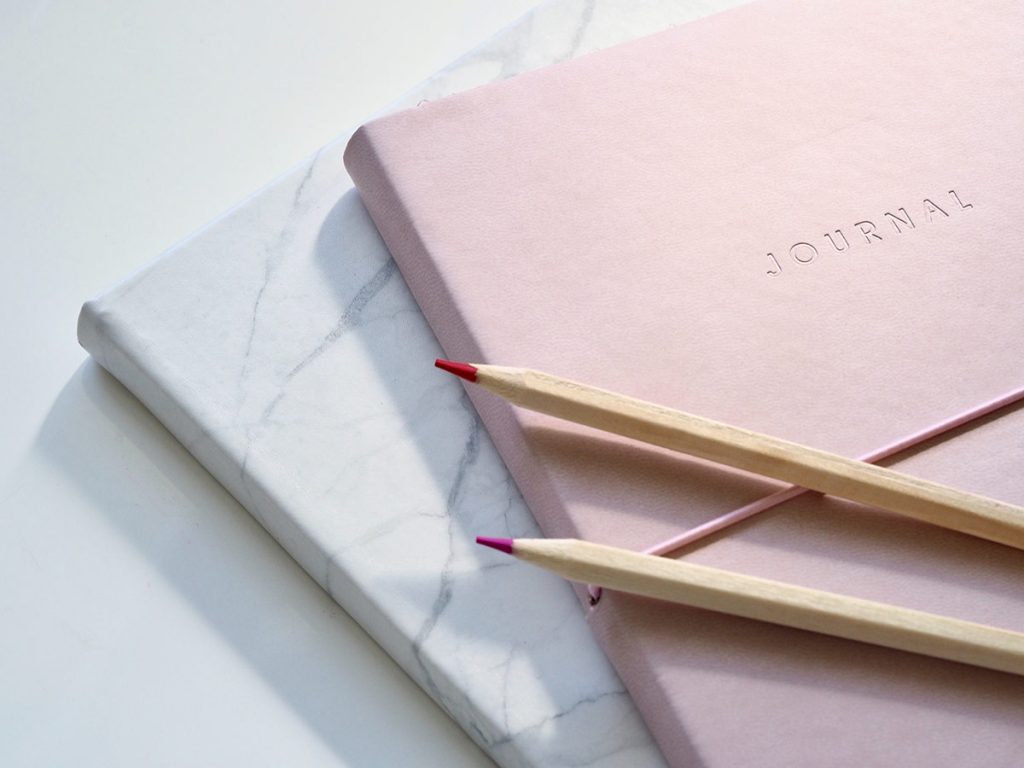
How to Learn a Language By Yourself: Tips From Top Language Bloggers
Please keep in mind that some of the links in this post are affiliate links. In the event of a sale, I will be awarded a small commission (at no extra cost for you).
Learning a language by yourself can be a wonderfully rewarding, but also challenging task. Without the guidance of a teacher or a formal classroom setting, it can be difficult to know where exactly to direct your effort.
I asked language bloggers and teachers from around the world to share their number one tip for learning a language by yourself.
Here’s what they had to say.
Table of Contents
Jamie from Crashed Culture
My number one tip for learning a language by yourself is to learn a language in a way that works for you! That may seem obvious, but there are so many experienced language learners online that share so many different kinds of advice and recommendations for resources. If you’re constantly making decisions based on what somebody else is doing or how somebody else learned a language, you’ll end up burned out. Instead, when you get a new piece of advice, apply it to your personality, your likes, your lifestyles, and think about if it actually makes sense for you. If it doesn’t, don’t worry about it! Everybody learns languages differently.

About Jamie
Jamie is a language learning coach who helps independent language learners accomplish their language goals by understanding their own language needs.
Find more language learning tips on Crashed Culture and follow Jamie on YouTube and Instagram
Cierra from Cultured Simplicity
My number one tip for learning a new language by yourself is to use ANKI, every day if possible, and to take advantage of the audio features and “type in the answer” note types. I’m also a strong advocate for Pimsleur, particularly for languages with Latin characters or sounds the learner has familiarized themselves with. The platform is great for busy bees since you’re able to learn nearly entirely through 30-minute audio lessons. Consistency is key though, so learners should shoot to interact with their target language daily, regardless of how they choose to do so.

About Cierra
My main mission with Cultured Simplicity is to help other financially limited students master languages through digital immersion. And since less mainstream languages are often underrepresented on language teaching platforms, I share tips that even atypical language learners can benefit from. Most of my articles focus on D.I.Y language learning and finding creative ways to reach language goals.
Find Cierra on Pinterest and Instagram and visit her Etsy shop.
Chantal from Learn French with Chanty
Don’t be afraid of making mistakes
Many language learners are still struggling to be fluent simply because they are scared of making mistakes. Before saying a word they want to think it over and over, they wonder about what people will say, how they will sound… No! Stop doing that!
Mistakes are welcome when learning a language. Who doesn’t make some? Even native speakers do!
Consider them rather as an ally that you can learn from. Myself, I am a French native, and I have learned English like most of you. And for sure, my English is not perfect, but the great thing is I am not scared of speaking. I always tell myself that if I make a mistake I might get corrected and I will try not to make the same mistake again.
I like to take the example of a baby who is learning to walk. He will fall, sometimes, get hurt and even cry, but he will learn from his mistakes. And he will keep learning and learning until he starts walking one day.
And that brings me to my second piece of advice. Consistency!
Consistency is key
I know from my experience that learning a language is a long process. We won’t always have the same determination. Sometimes, you will find it so difficult that you might want to give up all the good work and progress you’ve achieved previously. But please don’t give up! Try learning a little, every day. You don’t need to do a lot at once! You can practice even if it’s 15 minutes per day. Keep regular contact with the language, even if it’s a quick reading that you do, a song you listen to, a small talk with a friend, reviewing a grammar rule… All types of learning are welcome.
Give yourself some time and if possible practice at the same time every day to create a learning routine. Remember this! Consistent practice is the key to your success !
I shared my great tips for learning French language in this post but they also apply to any language.

About Chantal
Chantal is a native French speaker and a fan of languages. She speaks French, English, a bit of Spanish and would love to add on Chinese by the end of this year. She has been teaching languages for almost 6 years and really appreciates helping people from all around the world to learn their favorite language. Her website Learn French with Chanty is for beginners and intermediate French learners who want to find some useful resources to improve their skills.
You can follow her on Facebook, Instagram, Pinterest, Tumblr and Twitter.
Kiana from She’s Fluent
Be consistent!
My number one tip for learning a language by yourself is to be consistent! Even if you just do one small five-minute task, like writing a few sentences or reading a short article in your target language, it still helps. This is also a great way to start building a language learning habit, which will help propel you to fluency more than if you study hardcore for a few weeks to then never touch your target language for weeks after.
Learn through music
Find music in your target language that you genuinely love. Listening to music (and singing along!) in your target language is a great way to immerse yourself in the language; get familiar with the pronunciation, tones, and rhythm of the language; and it’s fun so it won’t feel like work to do daily. It’s important that you genuinely enjoy the music, because then you’ll actually want to listen to it, and will be motivated to learn what they’re saying!

About Kiana
Kiana is a 20 something who loves broccoli, milk tea, and learning languages! After studying Norwegian for four years, she’s started sharing her language learning tips and tricks with other learners.
You can read more of Kiana’s work on She’s Fluent and follow her on Pinterest.
Michele from The Intrepid Guide
Identify your learner type
Before you start learning a foreign language it’s important to identify what your learner type is. Knowing what kind of language learner you are will not only save you time, but it will ensure your time spent learning is catered to your individual needs. This in turn makes the language learning process both effective and fun.
By taking a short quiz, you will know if you’re a visual, aural, verbal, or a kinesthetic learner. Armed with this important information you can then start to seek out and use specific tools, techniques, methods, and resources that resonate with you to meet your specific needs.
Understand how the memory works
A key aspect every learner should understand is how the memory works. Once you understand how the brain retains and recalls new information from short-term and long-term memory you’ll be able to use it to your advantage. It’s easy to get impatient with the process and ask questions like “How long does it take to learn a language?” when the real focus should be on enjoying the journey to fluency.
There are a myriad of different ways to improve your memory. My two favourite techniques are to write things down on paper as this requires more in-depth processing of the information thus making it better understood.
The second memory technique is to use mnemonics to create meaningful associations between what you already know with the new information you want to remember. You can do this by using images, rhymes, acronyms, and many others. One example is how we’re taught to remember the colours of the rainbow, using the mnemonic acronym Roy G. Biv which represents the sequence of colours: Red, Orange, Yellow, Green, Blue, Indigo and Violet.

About Michele
Michele is an Australian language and travel blogger and ‘guide’ behind The Intrepid Guide. Michele aims to enrich her readers’ travels with her detailed destinations guides, free travel phrase guides, and online language courses so they can enjoy meaningful interactions with the locals and avoid being treated like a tourist.
Follow Michele on Instagram, and Twitter and Facebook and YouTube as she shares fascinating and little-known linguistic and cultural facts.
Lola from Mustard Language
My number one language learning tip, no matter how you learn, is flashcards. Whether it’s paper cards or anki/quizlet, flashcards will help you remember everything you learn in your study.
Where most people fall down in flashcard study is that they don’t make their cards interesting enough. It’s all about finding what works for you: try out putting example sentences and missing word problems. Alongside your flashcards, make sure that you use the words yourself while speaking or writing – this will cement your knowledge in your head.

About Lola
Hello! I’m Lola and I run Mustard Language, where I share posts for new language learners filled with tips, methods and recommendations to help you along. If you’d like to read more from me, visit my website!
Junjun from Little Jun’s Chinese
As a language learner, my number one tip is to set short-term goals and stick to them. Although long-term goals sound more forward-looking, they can sometimes cause unnecessary pressure on us. I think it is more feasible to set short-term goals.
My short-term goal is usually one week.
For example, as an English learner, I set a goal for myself every week such as completing 20 English readings, 5 translations, 3 writing, 8 listening exercises, and 300 English words memorized within a week (with limited time). At the same time, according to the daily schedule, the time to complete each item is reasonably allocated.
Normally, I like simple and complex combinations. Do the simple ones first, so you have more confidence to do the complex ones.
Save at least a day to summarize what you did, including your strengths and shortcomings, so that you can adjust your plan timely and do better in the next week.
I made a form as an example. I hope my tip is helpful and good luck with your language learning!


About Junjun
Hey, everyone! My name is Junjun and I’m from Liaoning, China. I am a Mandarin Chinese teacher online as well as a part-time freelance translator. I have started a YouTube channel and I make videos related to useful Chinese, Chinese culture and hopefully one day I can sing Chinese songs while playing the guitar.
My favourite quote is 功不唐捐(All efforts are not made for nothing).
加油, everyone!
Orson from Effortless Learning
Learn effortlessly
Of course… without any effort. But what does that mean?
Go back in time, when you were a kid. Do you remember… did you put any effort into learning your mother tongue? Did your parents teach you the grammar rules on a blackboard?
No, they didn’t!
Blackboards came later in school to learn writing and reading.
After all, you have to admit you are perfect in at least one spoken language, the one you were surrounded by as a child.
And your approach as a kid was totally effortless. You adopted, you copied your parent’s voice, words, and sentences.
Learning your native language didn’t require any focus on the actual learning process. It came apropos nothing, just because you were surrounded by it, there was no other possibility only that you will finally master it.
Grammar rules, new vocabulary words, bending words, etc. everything went through numerous repetitions effortlessly to your subconscious.
This method focuses on practicing listening and speaking every day. The idea is that rules of grammar will automatically develop subconsciously.
If you’re wondering exactly how this works, you can check out Effortless Learning’s free LEWINS (LEarn WIth Native Speakers) system.

About Orson
Orson runs Effortless Learning, where he shares his method for mastering a second language the same way you did as a child.
You can follow him on Twitter, Facebook, Instagram and Pinterest







7 Comments
Lola
February 5, 2021 at 2:55 pm
Thanks for letting me contribute! And I love the tips given – I’ll be trying out the tips and also some of the new bloggers I hadn’t heard of yet. Thanks again, Elzette 🙂
Elzette
February 5, 2021 at 3:13 pm
Thanks so much again for sharing your tip, Lola!
Cierra
February 6, 2021 at 3:42 am
Hi Lola, I was so excited when I saw you listed too! Fabulous advice as always. As the old saying goes, great minds think alike. Flashcards are so essential when learning languages that it always makes me happy to see someone else stress their importance. And you’re right– they definitely don’t have to be boring.
Cierra
February 6, 2021 at 3:46 am
Such an honor to be included in this list. It’s people like you, Elzette, and all the other bloggers and teachers in this post that make me proud to be part of the language learning community. Great tips all around.
Elzette
February 7, 2021 at 9:46 am
Thank you so much for your kind comment, Cierra! And thank you for sharing your tip. It’s wonderful to connect with people who share a passion for languages!
Kezia
September 3, 2021 at 10:03 am
I definitely resonate with Chantal’s advice about making mistakes – it’s even the basis on my own page http://www.thebadfrenchblog.com
This whole post was so helpful for me as a language learner! Love discovering more language learning communities online! Thanks 😊
Elzette
September 3, 2021 at 4:15 pm
So glad you found it useful, Kezia!
Comments are closed